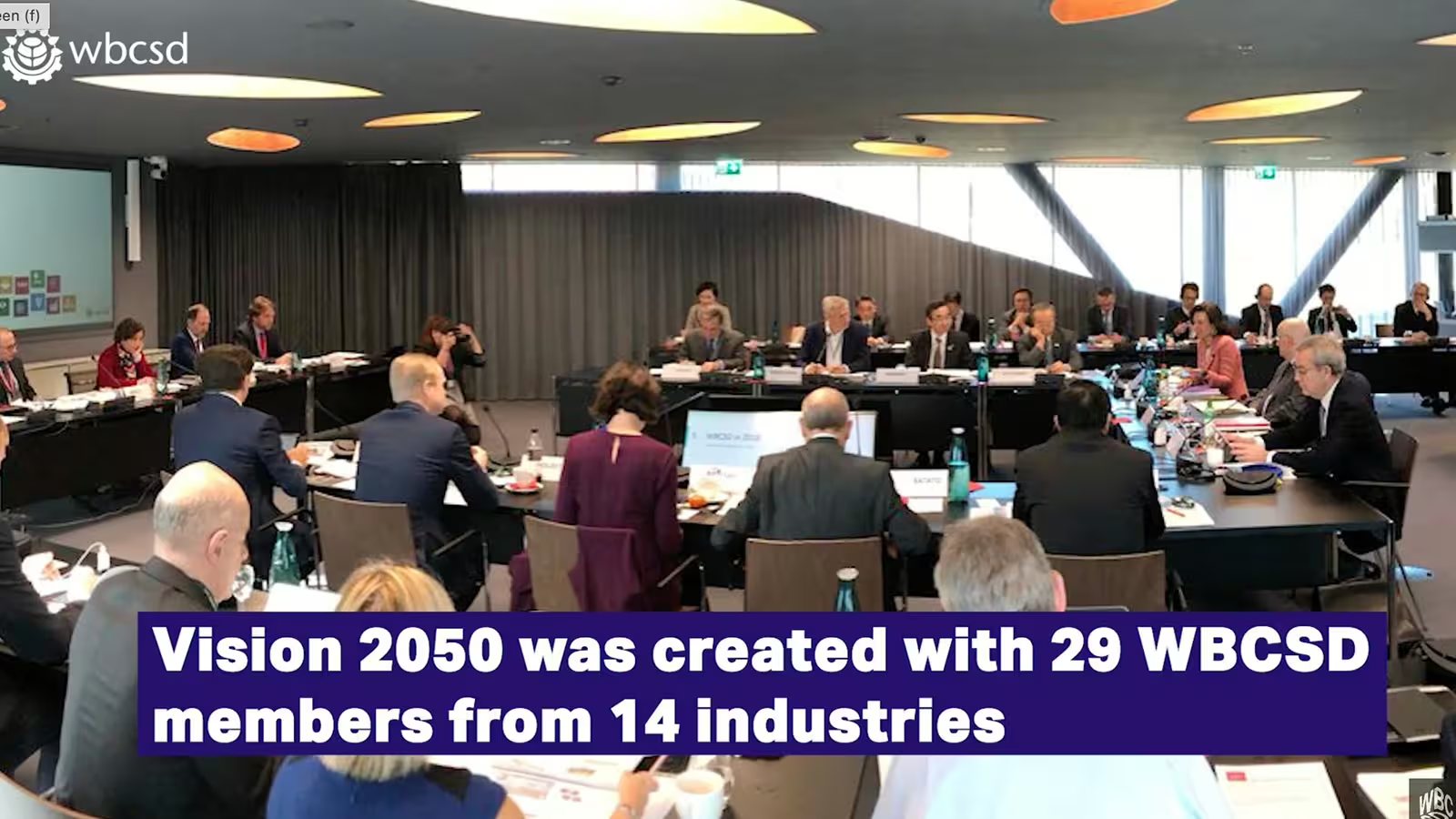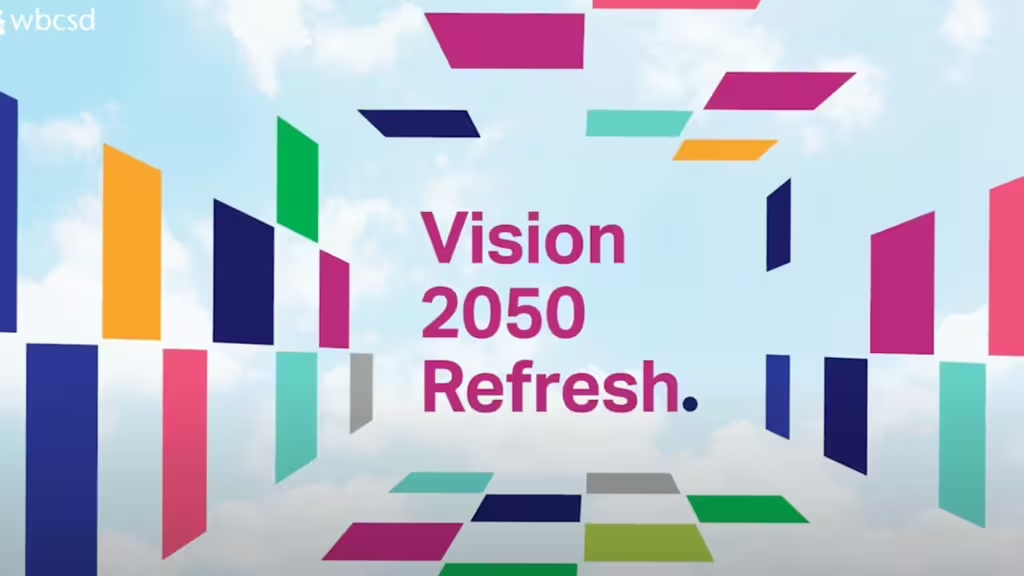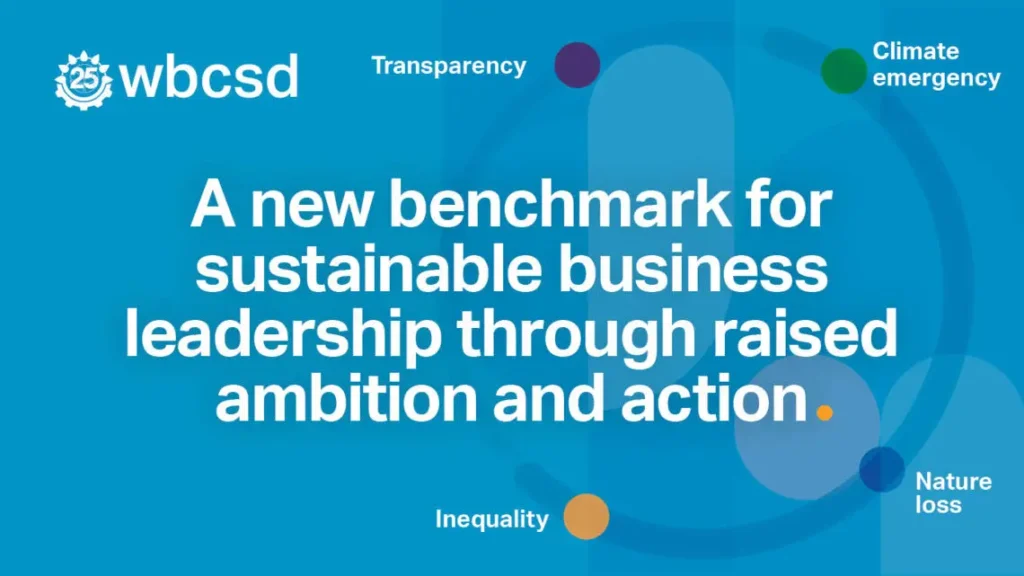“Walk into the board room of a typical Fortune Global 500 company today and the talk will be about today’s challenges. In an environment that rewards short-term gains, immediate concerns understandably dominate management’s time and attention. Many companies with relatively long business horizons are still effectively looking at their watches rather than their calendars. So what would happen if the people in those board rooms asked themselves this simple question: What will the world look like in 2050?”
Geneva, 24 April 2019: The paragraph above is an extract from a letter sent to members of the World Business Council for Sustainable Development (WBCSD) in January 2010, informing them of the launch of Vision 2050 – an ambitious study mapping out the transformative changes necessary to allow over 9 billion people to be living well, within the boundaries of the planet by mid-century. Created with 29 WBCSD members from 14 industries, and including insights from more than 200 companies and external stakeholders in some 20 countries, it declared that business as usual was not sustainable. Vision 2050 explored what a sustainable world would look like in mid-century, how such a world could be realized, and the role that business has to play in making that vision a reality.
Vision 2050 had at its core the attributes of successful business planning: understand the current situation, identify the obstacles to success, and create a pathway to overcome those obstacles. The resulting conclusion: we need to fundamentally transform the way the world produces and consumes everything from energy to agricultural products. Vision 2050 went on to identify unprecedented opportunities within the shift for those businesses that understood they could no longer operate in business-as-usual, autopilot mode.
Almost 10 years on from the publication of the original Vision 2050, the key concepts it explored have largely stood the test of time. The pathway that it put forward accurately identified the importance of systems transformation and predicted the key action areas for initial progress towards this from 2010-2020 including new concepts, such as the circular economy, which have since become firmly established as part of the broader business landscape. It also coined the term “Turbulent Teens” to describe the current decade – turbulence that seems highly likely to continue for some years to come.
Inevitably however, a number of topics have either increased in importance or emerged as critical new areas within the sustainable development landscape and even beyond, such as the deep changes being driven by technology. Furthermore, the world that business is operating in continues to change: social tensions and environmental impacts are on the rise. These escalations are already leading to fundamental questions being asked about the role of business, and the economy as a whole, within society. Business has a material interest in shaping a viable long-term operating environment. Meeting this responsibility will require system-wide transformations in food, energy, mobility, cities and communities, materials, work and education and the economy itself. But do we really understand what systems transformation will involve?
Under the leadership of our Executive Committee, which is responsible for supervising the strategy and monitoring the effectiveness of operations, controls and governance of WBCSD, we are now embarking on a project to refresh this vision. A revisiting offers us the opportunity to analyze social, economic and political shifts, and to incorporate new critical elements that have emerged. It allows us to review these developments to understand and shape systems transformations and also establish what the role of business within these will need to be. And through this process we can create a renewed collective, positive, business action and leadership agenda for the 2020-2030 decade to come.
We invite interested companies to join this project, building a positive and inspiring platform through which business and its stakeholders can come together to advance transformation and unlock its opportunities.
For more information, access this short brochure or feel free to contact us




